
Story by WILLIAM OCHIENG' Publication Date: 2/18/2008
Macharia Gaitho was right, that by default, Kenya has attained a majimboist status (Daily Nation, February 5, 2008). This status arose from the post-December 27 General Election crisis, which some of our selfish leaders have forced onto us.
It is evidently true, as Gaitho says, that we have witnessed, on a massive scale, the forced movement of people back to their “supposedly ancestral homelands.” Usually an excellent, balanced and perceptive writer, Gaitho nevertheless proceeded to lament the implication which this unplanned majimbo status may have on Kenya’s search for modern statehood.
I think differently. I think our political crisis shows us exactly what the majority of Kenyans think and want. No Kenyan community, so far, has mentioned, or even thought of, secession. Which means that they all remain solidly Kenyan.
It now remains to us to construct a strong Kenyan federalist state from the rubble of post-election turbulence, together with modalities for interaction between the regions.
OUR PEOPLE, FROM MOUNT ELGON in the west, to the Kenya Coast, have always asked for change, from the structures and policies that we inherited from colonialism. But our leaders, starting with Jomo Kenyatta down to Mwai Kibaki, have always refused to listen. Now that the Kenyan communities have decided to take matters into their hands and to show the way, are we prepared to listen?
And what, exactly, are the angry Kenyans saying? What changes do they want? How do they want Kenya to be governed? I suspect that these questions are not new, but the majority of our leaders, particularly those who are the direct beneficiaries of the colonial legacies, have been reluctant to ponder them.
Leading amongst Kenya’s grievances is the question of land. Most Kenyan communities claim that land questions were rashly and unfairly handled by our leaders soon after independence.
Inter-ethnic borders were left vague, and the landed-estates, which the settlers had illegally occupied, were quickly acquired by the emergent African elite, instead of being returned to those who had owned them before the white settlers came.
Even more painful is that, the new occupants of former settler estates are considered to be more arrogant and selfish, than the former white settlers.
Then, there is the persistent question of the national economy. This, again, is in the hands of the emergent African elite class, who run it in collaboration with their international conspirators, as if the majority of Kenyans do not exist. Most Kenyans simply look at what is happening across the fence. The elite form companies, fix and manipulate prices, decide who to employ and are disinterested in the general welfare of the masses.
There is also the question of national leadership, which is contested and manipulated by the rich. Given that democratic leadership hinges on the majority, it means that people from small tribes and clans will be forever excluded from power. In Africa, power is used to develop the regions of the leaders.
THEN THERE IS THE QUESTION OF ethnicity — which is the ideology of the rich and educated. Ethnic chauvinists are the most annoying people, particularly when they are also the leaders. They often intimate who they do not want and who must be excluded from the resources of the State. They divert tourists from regions they hate, and sit forever on development funds for projects that do not benefit their ethnic community directly.
The above, and several other questions and issues, are at the core of Kenya’s national dilemma and instability. They are not new or un-reformable issues, but surprisingly, few Kenyan leaders have time for them. Our leaders campaign to go to Parliament not to cater for the interests or concerns of their electors, but to find ways of enriching themselves.
The Kenyan people are saying that since in the last 44 years, they have failed to find honest leaders to listen to what they want, they could as well take over the management of their ancestral regions.
___________________________________
Prof Ochieng’ teaches history at Maseno University
Prof Ochieng’ teaches history at Maseno University







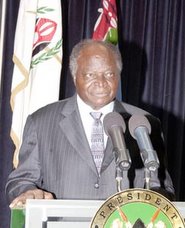


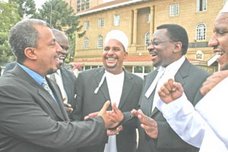
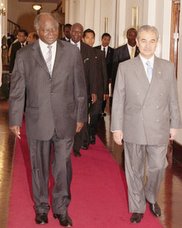

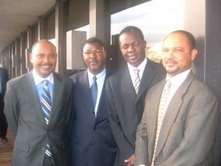
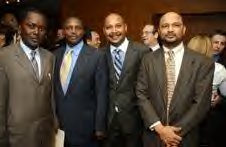
No comments:
Post a Comment